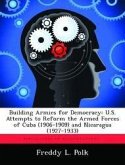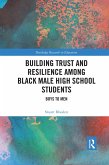Governments attempting to counter insurgent threats often lack the authority, influence, and control to counter these threats, creating what some have described as 'ungoverned' spaces. A number of governments seek alliances with non-state armed groups that emerge from these conflicts. These groups have proved effective at reducing violence in some cases, most notably demonstrated by the Sunni 'Sons of Iraq'; movement. As governments consider forging alliances with non-state armed groups, they often focus on how to ally with these groups, what support they might gain from these relationships, and how to employ these groups to defeat a common threat. Typically, leaders give less thought to the eventual transition of these groups from war to peace. How then, can governments transition non-state armed groups from war to peace? The implementation of a Disarmament, Demobilization, and Reintegration (DDR) program provides an effective method for building government trust and transitioning war-torn societies towards peace. The United Nations developed a model to assist countries with this process, which it described in the Integrated Disarmament, Demobilization and Reintegration Standards (IDDRS). The application of the UN's IDDRS model to three case studies demonstrates its usefulness. The selected case studies encompass different eras, cultures, and continents including the UN intervention in Sierra Leone in the late 1990s, British support for the indigenous units during the Dhofar Rebellion in Oman in the 1960s and 1970s, and the Colombian government's demobilization of pro-government forces starting in 2003. The application of the UN's IDDRS model to the events in each of these case studies suggests the potential effectiveness in transitioning armed groups from war to peace. The challenges involved in implementing a DDR program also offer considerations for leaders as they evaluate and develop alliances with non-state armed groups.
Hinweis: Dieser Artikel kann nur an eine deutsche Lieferadresse ausgeliefert werden.
Hinweis: Dieser Artikel kann nur an eine deutsche Lieferadresse ausgeliefert werden.








